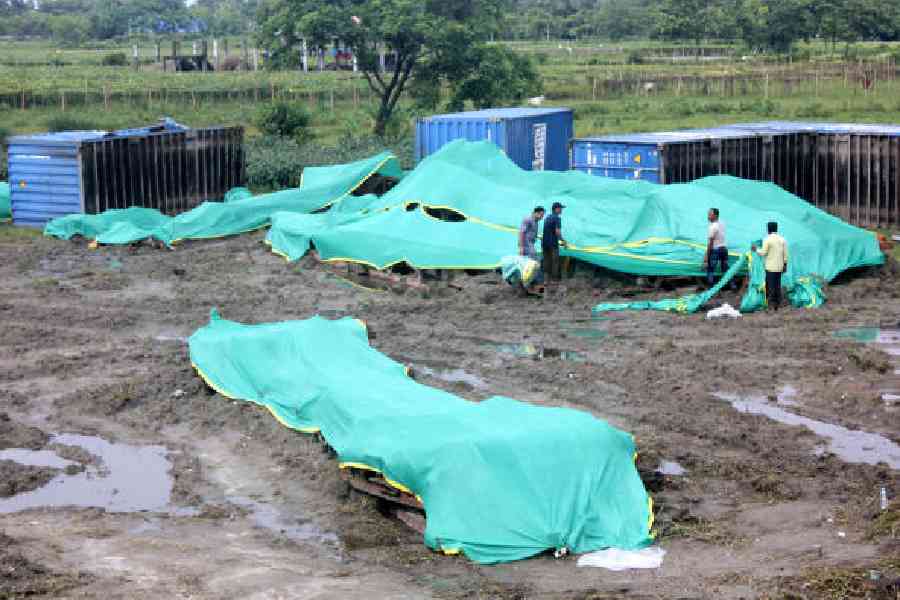The chief commissioner of railway safety (CCRS), Janak Kumar Garg, of the Northeast Frontier Circle has been investigating the incident in which a goods train rammed into the rear end of the Sealdah-bound Kanchenjunga Express near the Rangapani station of the Darjeeling district
 |
| Workers cover the mangled coaches at the accident site on Thursday: Picture by Passang Yolmo |
Bireswar Banerjee, TT, Siliguri, 21.06.24 : The claim by loco pilots of the Northeast Frontier Railway that their training is deficient has gained ground as instructors and others associated with the zonal training centre of the NFR have been brought under the ambit of the probe into the collision of the two trains near Siliguri on Monday.
The chief commissioner of railway safety (CCRS), Janak Kumar Garg, of the Northeast Frontier Circle has been investigating the incident in which a goods train rammed into the rear end of the Sealdah-bound Kanchenjunga Express near the Rangapani station of the Darjeeling district.
“Those associated with the zonal training centre in Alipurduar have been called. Their statements would be recorded. In the course of the inquiry, all possible angles would be explored to find out what has led to the accident,” Surendra Kumar, the divisional railway manager of the Katihar division of the NFR, said on Thursday.
He said statements of 16 persons had been recorded since Wednesday.
After the accident, loco pilots and representatives of the All India Loco Running Staff Association had said although an automated signalling system had been introduced in the NFR, they were not trained properly.
“The loco pilots need proper training so that they can run trains along stretches where the automatic signalling has been introduced and also if the system is not running,” a representative of the association had said.
In the NFR, loco pilots are provided with practical training at the specialized loco training institute in Siliguri Junction station.
“The would-be loco pilots are trained for two months at the institute. After the training, he/she is declared eligible as an assistant loco pilot. In due course, he takes further training to be promoted as a loco pilot,” said a source.
In one batch, around 60 candidates can be trained at the institute.
From there, the candidates are sent to the Multi-Disciplinary Zonal Railway Training Institute in Alipurduar for further training.
Also, loco pilots, station managers and others working in different wings of the railways are provided with training at the centre.
The training modules include theoretical and practical classes and are followed by exams and interviews.
“According to the rule, a loco pilot has to pass the exam and the interview. Only then, he/she gets a certificate which mentions that the loco pilot or the assistant loco pilot is proficient to run trains along stretches where there is an automatic signalling system,” said a source.
A loco pilot based at NJP has said that as the instructors and others who provide training have been called for the inquiry, it is evident that the CCRS will record their statements to find out whether adequate training was provided to loco pilots, station managers and others associated with railway operations.
Kumar, the DRM, however, rejected the charge raised by loco pilots.
“Training is conducted systematically.” he said this evening.
